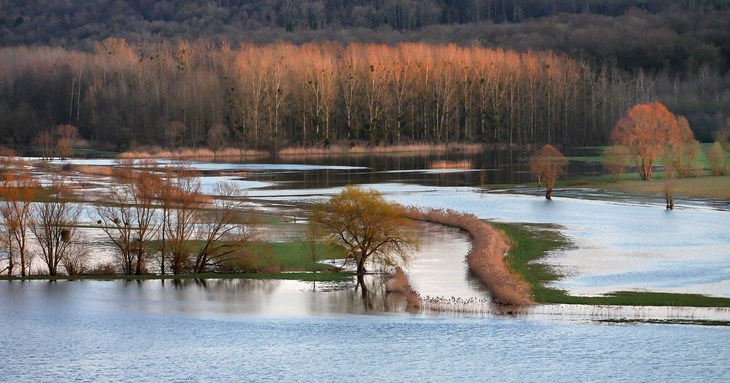How Exeter must play its part in tackling carbon emissions
Published: 27 May 2021

In his latest blog Denis The Dustcart, our very own environmental champion, looks at the issue of carbon emissions, and how Exeter is playing its part in tackling the problem
Carbon - there is too much carbon in our atmosphere. We hear it said all the time.
But what does it mean? And how does Exeter figure in the problem – and in the solution?
Carbon figures are too easily seen as just more numbers among many other apparently significant yet incomprehensible climate-related statistics. People find it difficult to relate their personal lives and experiences to data on a page.
Put simply, carbon emissions trap solar energy in our atmosphere, heating up the planet, intensifying the frequency of storms, melting the ice caps and raising sea-levels.
Every tonne of CO2 emitted around the world causes 3 square metres of Arctic sea ice to melt, according to a report in Science.
Rising sea levels will displace millions of people in rural Bangladesh, which is a low-lying country. The land will become unworkable. Different opportunities await in the cities, but many of those cities are on the coast and may also become uninhabitable. These people will become climate refugees.
What has this got to do with how we live in Exeter? How can we possibly make a difference?
91% of goods imported from Bangladesh to the UK is clothing. The fashion industry is responsible for 10% of all carbon emissions worldwide – more than all aviation and maritime shipping combined.
The industry pumps out over 2 billion tonnes every year. Bangladesh is the second biggest producer of clothing in the world. It is, essentially, their economy.
However, people in the UK are responsible for significantly more carbon emissions per person than people living in Bangladesh. In 2014, our emissions worked out to an average of 6.5 tonnes per person for the year. That’s 19.5 square meters of Arctic ice gone for each of us.
Bangladesh had a CO2 output of just 0.42 tonnes per person in that time. 1.26 tonnes of ice each.
Our demand for fast fashion is our responsibility. We are driving those whose economies rely on our demand towards calamity. Our choices; our impact.
Therefore it’s only right that we should act to protect those in the immediate firing line of the climate breakdown.
But the blows of climate collapse won’t land only in far-off places.
Severe storms, which used to be ‘once in every hundred years’ events in the UK, are now happening twice in every five years, flooding towns and homes built on natural flood plains and where natural irrigation has been compromised by human activity, making whole communities homeless. The British have always been preoccupied with the weather, but this is a genuine cause to be concerned.
For those unaffected directly by such catastrophes – i.e. those who live on a hill – the challenges of climate breakdown will nonetheless manifest in an impact on the economy and the accessibility of goods we once took for granted. Crops failing due to the soil’s nutrients being washed away by floodwater, or soil-degradation through over-irrigation or a lack of rainfall in other places of the world – crops that we rely on for our goods and food – will inevitably have a deep impact upon how we live.
The fact is: all human activity, wherever it occurs, is linked directly to the global climate and environmental emergency. Everyone on earth is responsible for the earth.
It’s vitally important that we all understand there are consequences to our lifestyle choices. Which isn’t to say we must all become experts – how many of us really know the environmental impact of every last thing we buy? – but rather that we must all do our best with the information we have and continue to be open to learning as more information becomes available.
Just as important, however, is the need to look after the small corner of the planet that we actually occupy. This is where we, as a population living in disparate communities, need leaders to show us what can be done and to commit us to doing it.
And that is what Exeter is committed to being – a leader.
If Exeter was alone in making the effort to change, nothing would change. But we’re not alone – we can’t be alone – and the more places that work for change, the more joined-up the world becomes in that work.
This is why we are pursuing Net Zero Exeter by 2030. It’s a commitment that will help to shape a better future – not only for Exeter’s residents, but inevitably for everyone.
